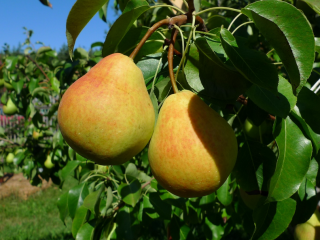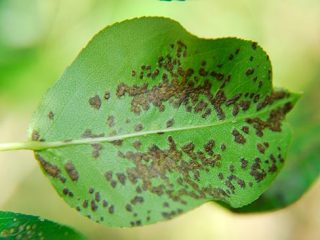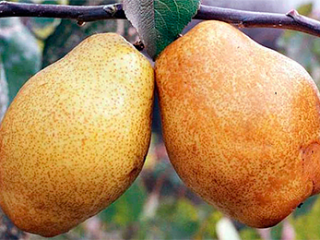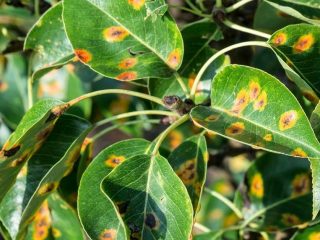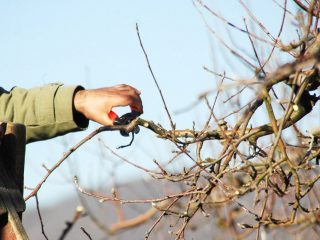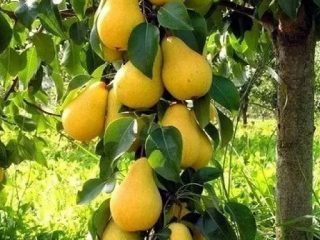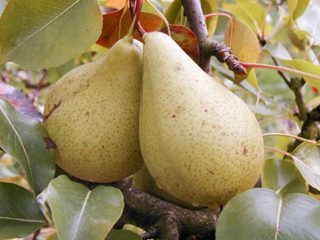Content
Fairytale pear is an early autumn variety with large, tasty fruits of universal use. It has high winter hardiness, good immunity, and average yield. The variety is adapted to harsh climates and is easy to care for.
History of selection
The originator of the Skazochnaya pear is the Ural Federal Agrarian Research Center of the Ural Branch of the Russian Academy of Sciences. The authors of the variety are:
- Mazunin Mikhail Alexandrovich;
- Putyatin Vladimir Ilyich;
- Falkenberg Ericht Alexandrovich.
To develop the Skazochnaya variety, the Tenderness and Drooping pears were crossed. In 1993, state testing of the new product began, and in 2002 it was included in the State Register of the Russian Federation.
Description of Fairytale pear with photo
According to reviews, the common Fairytale pear is characterized by rapid growth. Trees are pruned regularly and vigorously.
Tree
Fairy tale pears are tall trees. They look like this:
- height up to 4 m;
- crown shape is narrow pyramidal;
- branches are straight, with ends pointing upward, compact arrangement, at an angle of 90° to the trunk;
- the shape of the leaves is oblong, short-pointed, small in size, dark green in color, smooth with a shiny surface;
- the plates are flat, without pubescence, with smooth, coarsely crenate edges;
- the size of the stipules is small, the shape is elongated;
- the bark is brown, peeling;
- The length of straight shoots is average, the color is dark red, there is no pubescence;
- a lot of large lentils;
- the shape of the bent buds is round, the size is small, there is no pubescence;
- leaves on long and thick petioles.
Fruit
The Skazochnaya variety is ranked among the large-fruited representatives of the crop. Pears average 180 g, maximum 250 g.
Their characteristics are as follows:
- regular pear shape;
- beautiful view;
- dry skin with dull surface;
- the color is greenish when picked, after full ripening it is yellow-green without cover;
- Numerous dots under the skin are clearly visible, they are large in size and gray in color;
- the size of the narrow funnel is small, the rustiness is weak;
- closed type non-falling cup;
- wide and smooth saucer of medium size;
- the skin is tough, cleaning before use is recommended;
- the pulp is tender and semi-oily, the density is medium, the juiciness is high, the consistency is fine-grained, the color is white;
- the aroma is weak;
- The seed size is large, pitcher-shaped, brown in color, closed chambers.
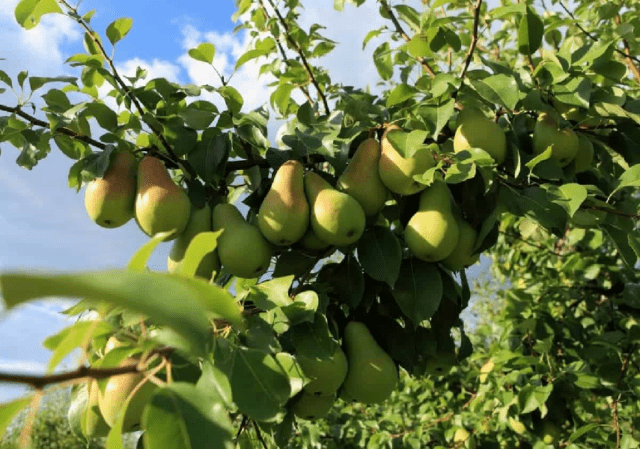
In terms of flowering time, the variety is late - the buds bloom towards the end of spring
Characteristics of the variety
The fruits of the Fairytale pear attract with their one-dimensionality. Coupled with a beautiful appearance, this provides excellent product characteristics.
Taste qualities
The Fairytale pear has a good dessert taste and the flesh is sweet.It has spicy notes. The aroma is weak.
Ripening time
Fairytale pear is an early autumn variety of the crop. Many sources classify it as a summer variety, since the fruits ripen in the second half of August.
Productivity
The pear yield is fabulously average. 15 kg of fruits are collected from a tree.
Fairytale pear is a fast-growing variety. The crop bears its first harvest 4-5 years after planting. The crop bears fruit annually. The first two years the indicators are not too high, but then the yield reaches a stable level.
Winter hardiness
The pear has fabulously high winter hardiness. At the end of the 80s in the Urals, freezing of the mother tree at temperatures down to -48 °C was only 2 points.
Pollinators of the fairy pear
Pear Severyanka is a partially self-fertile variety. Cross pollination is necessary for good yield. For this purpose, the proximity of the following varieties is recommended:
- Severyanka;
- Krasulya;
- Rainbow.
For pollination, varieties with similar flowering periods are selected.
Growing regions
In accordance with the State Register of the Russian Federation, the Fairytale pear is recommended for cultivation in the Ural region. High winter hardiness and rapid recovery ensure good adaptability to harsh climates. Fairytale pear can also be grown in the Central and Volga-Vyatka regions.
Disease resistance
The Fairytale pear has good immunity. The variety is resistant to scab and is not afraid of gall mites.
Advantages and disadvantages
The ripe Fairytale pear does not fall off. Ripe fruits hold tightly to the branches.
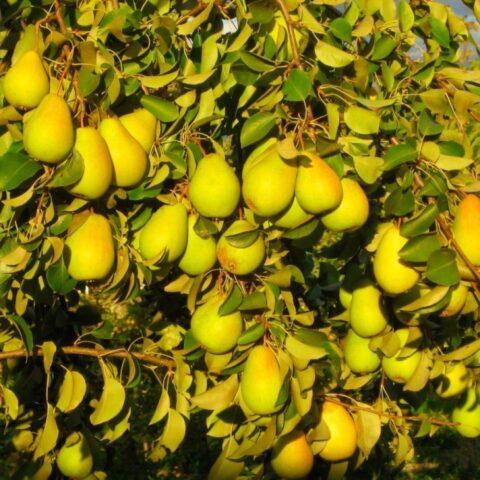
For propagation of the Skazochnaya variety, Ussuri pear seedlings are often chosen
Pros:
- high winter hardiness;
- large fruits;
- excellent presentation;
- good dessert taste;
- increased juiciness;
- one-dimensionality of fruits;
- universal purpose;
- annual stable fruiting;
- immunity to scab, gall mite;
- fast recovery;
- precociousness.
Minuses:
- tallness;
- short shelf life;
- low transportability.
Landing rules
It is better to plant the Fairytale pear in the fall. The optimal period is from mid-September to the beginning of next month. At this time, seedlings have a dormant period, which allows them to better adapt to new conditions and successfully take root.
Spring planting is also acceptable. It is also carried out during the rest period before the start of sap flow. The soil should thaw and warm up.
When choosing a planting site for the Fairytale pear, it is important to consider compliance with the following conditions:
- good illumination of the area;
- open space;
- remoteness of groundwater;
- loose and nutritious soil;
- loam or sandy loam is optimal;
- acidity is neutral.
Southern and south-eastern slopes are ideal for cultivation. The tree will not bear fruit in a closed lowland; it does not do well in peat bogs, saline or carbonate soil.
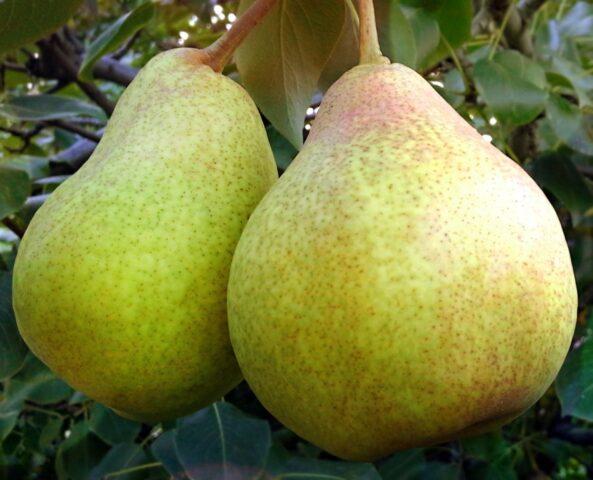
With a lack of light, productivity suffers - the tree may bloom, but the fruit buds will be underdeveloped
The planting pit is prepared at least three weeks in advance. Depth up to 80 cm, width 1-1.4 m. All weeds and debris are removed, fertilizers are added to the fertile soil:
- ¼ bucket of humus;
- potassium and phosphorus 1 tbsp. l.;
- if the soil is acidic - slaked lime or wood ash (one handful is enough).
The landing algorithm is as follows:
- Trim roots that are too long, rotten, dried out or broken.
- Treat the sections (crushed activated carbon will do).
- Soak the roots in water - if they are very dry, then keep them like that for a day.
- Pour the soil mixture into the planting hole in a mound.
- Place the seedling strictly vertically, straighten the roots.
- Fill the hole with soil mixture, periodically compacting the layer.
- Set the stake at 30 cm.
- Tie the seedling.
- Water the tree trunk generously.
- Mulch the planting.
Features of care
The Fabulous pear has high drought resistance. For a seedling, 2-3 buckets of water are enough, for an adult tree twice as much. Watering is carried out when the soil dries out. Water is poured at the root. Moisturizing is especially important during flowering and ripening of the crop.
When growing crops, fertilizing is necessary. First use ammonium nitrate. In the fourth year they switch to organic, and in the second half of the season they use mineral compositions. Feeding is applied three times per season:
- spring;
- fruit formation;
- autumn - the emphasis is on potassium-phosphorus compounds, nitrogen is not used.
Spring pruning of the tree followed by treatment with a clay mash is required. After this event, fertilizers are not used for a month. The shoots are shortened by ¼ length. Be sure to remove all old, dried and diseased branches.
In autumn, sanitary pruning is necessary. All plant debris, including fallen leaves, is burned.
For the winter, the tree trunk is whitewashed. A mesh is used to protect against rodents.
Collection and storage
Harvest as it ripens, focusing on the yellowing of the skin of the fruit. They begin to be removed from the periphery.A dry day is chosen for harvesting; the dew should have already disappeared. Remove the pears together with the stalk, without pressing them.
The skin of the fruit is tough, but the flesh is tender and juicy. It is recommended to place the collected pears in boxes, lined with soft material.
The Skazochnaya variety can be stored for no more than 1.5 weeks. After this period, the pulp begins to turn brown.
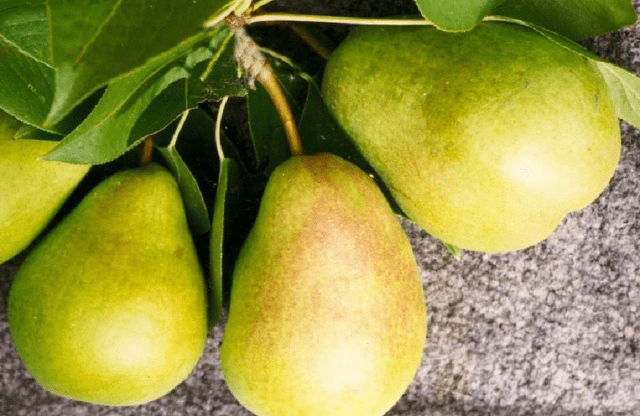
All damaged and overripe fruits are immediately sent for processing, otherwise they will immediately spoil
Conclusion
Fairytale pear is an early autumn variety recommended for the Ural region. It has high winter hardiness, sweet and juicy fruits, good immunity and stable yield. The variety has few disadvantages, the main ones being a short shelf life and low transportability.
Reviews from gardeners about the Fairytale pear
